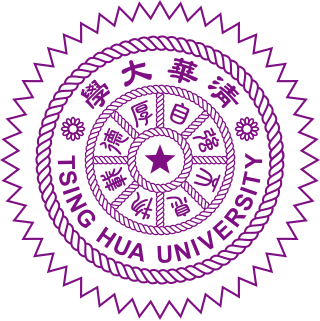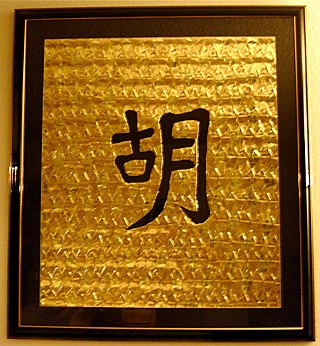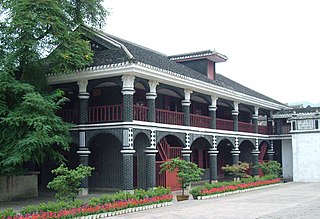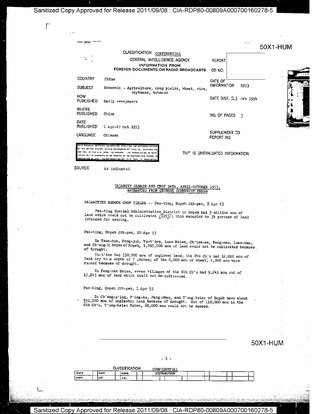Related Research Articles

Tsinghua University is a public university in Haidian, Beijing, China. It is affiliated with and funded by the Ministry of Education of China. The university is part of Project 211, Project 985, and the Double First-Class Construction. It is also a member in the C9 League.

National Tsing Hua University (NTHU) is a public research university in Hsinchu, Taiwan. It was first founded in Beijing. After the Chinese Civil War, president Mei Yiqi, and other major academics fled to Taiwan with the retreating Nationalist government. In 1956, they reinstalled National Tsing Hua University in Taiwan which has since remained independent and distinct from Tsinghua University in Beijing.

Jilin University (JLU) is a public university in Changchun, Jilin, China. It is affiliated with the Ministry of Education. The university is part of Project 211, Project 985, and the Double First-Class Construction.

Hu is a Chinese surname. In 2006, it was the 15th most common surname in China. In 2013, it was the 13th most common in China, with 13.7 million Chinese sharing this surname. In 2019, Hu dropped to 15th most common surname in Mainland China.

The Zunyi Conference was a meeting of the Chinese Communist Party (CCP) in January 1935 during the Long March. This meeting involved a power struggle between the leadership of Bo Gu and Otto Braun and the opposition led by Mao Zedong. The result was that Mao left the meeting in position to take over military command and become the leader of the Communist Party. The conference was completely unacknowledged until the 1950s and still no detailed descriptions were available until the fiftieth anniversary in 1985.

The Emperor in Han Dynasty, also released under the title The Emperor Han Wu in some countries, is a 2005 Chinese historical drama television series based on the life of Emperor Wu of the Han dynasty. It uses the historical texts Records of the Grand Historian and Book of Han as its source material.

Chen Yinke, or Chen Yinque, was a Chinese historian, linguist, orientalist, politician, and writer. He was a fellow of Academia Sinica, considered one of the most original and creative historians in 20th century China. His representative works are Draft essays on the origins of Sui and Tang institutions (隋唐制度淵源略論稿), Draft outline of Tang political history (唐代政治史述論稿), and An Alternative Biography of Liu Rushi (柳如是別傳).
The people of Shandong province or Shandong people refers to those who are native to Shandong province, the majority (99%) are classified as Han Chinese. They speak various forms of Chinese such as Jilu, Jiaoliao, and Zhongyuan. There is a small Shandong community in Singapore and Malaysia. Nine-tenths of the early overseas Chinese in Korea also came from Shandong. Shandong citizens, are also known to have the tallest average height of any Chinese province. As of 2010, 16- to 18-year-old male students in Yantai measured 176.4 cm (5'9.5), while female students measured 164 cm (5'4.5). Provincial average for both genders would be about 1cm less.
The Wu Chinese people, also known as Wuyue people, Jiang-Zhe people (江浙民系) or San Kiang (三江), are a major subgroup of the Han Chinese. They are a Wu Chinese-speaking people who hail from southern Jiangsu Province, the entirety of the city of Shanghai and all of Zhejiang Province, as well as smaller populations in Xuancheng prefecture-level city in southern Anhui Province, Shangrao, Guangfeng and Yushan counties of northeastern Jiangxi Province and some parts of Pucheng County in northern Fujian Province.

Events in the year 1953 in China.
Events in the year 2005 in China.
Events in the year 1955 in China. The country had an estimated population of 605 million people.
The following lists events in the year 1998 in China.

The China men's national volleyball team represents China in international volleyball competitions and friendly matches, governed by Chinese Volleyball Association. The team now ranks 26th in the FIVB World Rankings and the current head coach is Vital Heynen.
The China Center for Energy and Environmental Policy Research, better known as China CEEP, was founded in 2009. It is a Chinese think tank that conducts research on energy economics, climate policy and environmental management. Armed with qualitative and quantitative tools, it aims to provide a scientific basis for public and private decisions in strategy planning and management that are needed to cope with China's increasing demand for energy, as well as the challenges of adapting to and mitigating climate change. China CEEP also serves as a professional education center and a platform for international exchange in the area of energy and environmental policy research.
References
- ↑ Wood, Charlie. "Apple CEO Tim Cook took a chairman position at one of China's top business schools". Business Insider. Retrieved 2019-11-15.
- ↑ "Jiang Bin". Forbes. Retrieved 2 May 2015.
- ↑ "Forbes profile: Sun Hongbin". Forbes. Retrieved 10 April 2018.
- ↑ McNab, Alexander Cecil (2018-02-24). "Kung Fu Foreigner". The World of Chinese . Retrieved 2019-12-10. - The article misidentifies Pymble as her university (as "college" in American English means a university).